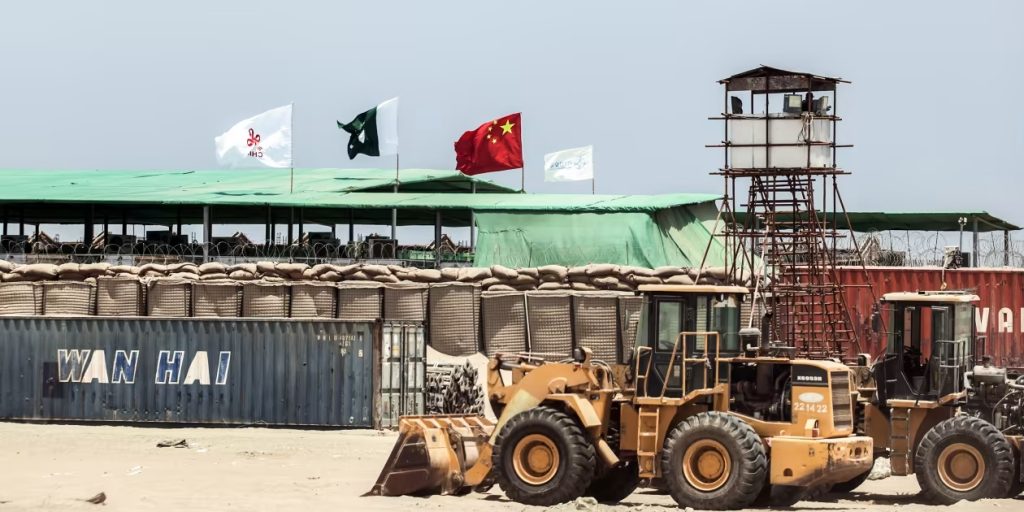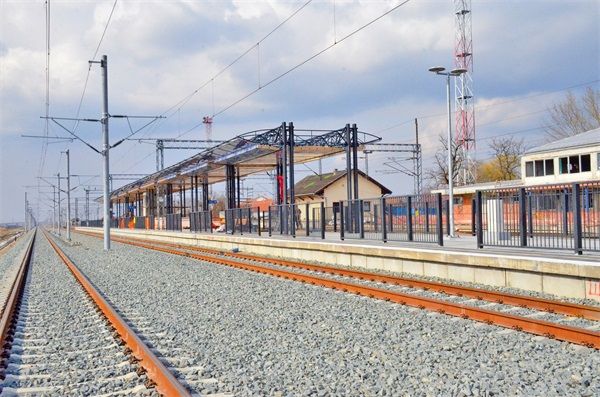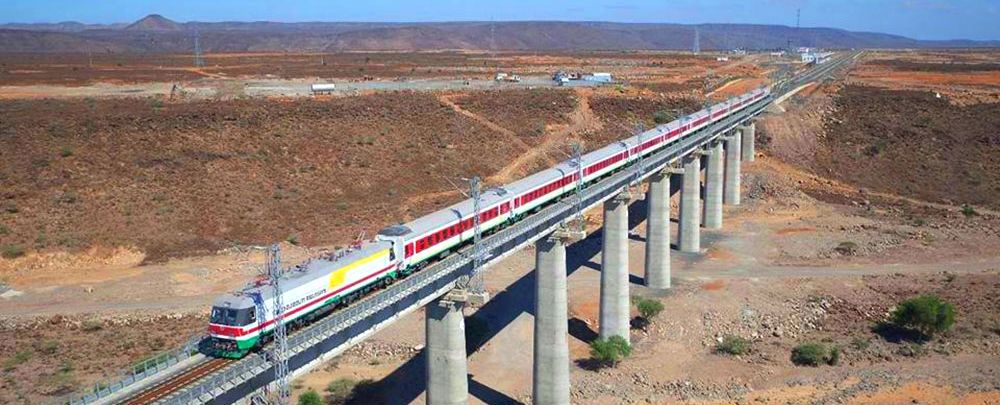China’s Digital Silk Road is rewiring the Middle East and North Africa (MENA) in ways that promise to reshape the economies, politics, and societies of countries across the region. In some ways, it already has.
Since Xi Jinping ascended to power in 2012, the country has been throwing its policy weight behind everything from basic sciences to “core technologies” and “strategic emerging industries.” Thanks in part to initiatives like “Made in China 2025,” the “National Informatization Strategy,” and “Thousand Talents Plan,” China has become a dominant force in the development of many Fourth Industrial Revolution technologies.
Converging Interests
Beijing has sought to export these homegrown digital innovations to partner countries along its global mega-infrastructure project, the Belt and Road Initiative (BRI). Accordingly, in 2015, China’s National Development and Reform Commission, Foreign Ministry, and Commerce Ministry issued a whitepaper that called for expanding the BRI to include a Digital Silk Road (DSR).
Some of the DSR’s objectives include: mitigating industrial overcapacity, facilitating the global expansion of Chinese tech firms, setting standards for emerging technologies from the ground up, supporting the renminbi’s internationalization, constructing a China-centric network infrastructure, and promoting what Chinese policymakers call a “community of common destiny in cyberspace”. Since its inception, the initiative has been endorsed by the highest echelons of China’s leadership, including President Xi himself.
In a May 2017 speech delivered at the opening of the Belt and Road Forum in Beijing, Xi Jinping declared: “We should pursue innovation-driven development and intensify cooperation in frontier areas such as digital economy, artificial intelligence, nanotechnology, and quantum computing, and advance the development of big data, cloud computing, and smart cities so as to turn them into the Digital Silk Road.”
While China climbed the technological value chain, many MENA states recognized the need to close the digital divide and embrace diversification to promote sustained economic prosperity. These countries implemented national strategies to develop their financial sectors, cultivate innovation ecosystems, and become knowledge-based economies. As governments increased policy support to facilitate their country’s digital transformations, they welcomed China’s DSR.
In a demonstration of their enthusiasm for the initiative, Egypt, Saudi Arabia, Turkey, and the United Arab Emirates (UAE) have all signed official DSR memoranda of understanding with Beijing. Meanwhile, other countries, like Israel, have not formally signed onto the DSR but enjoy robust cooperation with many Chinese companies spearheading the initiative.
Chinese Tech Arrives in MENA
The Saudis have contracted Huawei to construct a 1,300 megawatt-hours energy storage system to power Neom – Saudi Arabia’s flagship $500 billion smart city endeavor along the country’s Red Sea Coast. The Chinese tech giant has also been enlisted to develop 5G capabilities, apps to streamline pilgrimages to Islam’s holiest sites, and a solar-powered data center. Meanwhile, the Saudi Data and AI Authority (a government agency) is working with Alibaba Cloud on intelligence-driven smart city solutions that leverage innovations in artificial intelligence. In the military domain, China has reportedly been assisting Saudi Arabia with its ballistic missile program.
Beyond the Kingdom, Chinese firms have come to play a central role in “Morocco Digital 2025“, “Digital Egypt”, “Smart Dubai 2021”, and other national transformation strategies. In Morocco, BCME Bank inked an MoU with China Communications Construction Co (CCCC) and its subsidiary, China Road and Bridge Corp (CRBC), to develop Tanger Tech City. Once complete, the 2,000-hectare city is expected to house 300,000 people and create 100,000 jobs. Huawei has already set up a logistics center at Tangier Med Port and is deeply involved in Morocco’s telecommunication systems.
In Egypt, China State Construction Engineering Corporation (CSCEC) is building an entire city from scratch. The New Administrative Capital will host 6.5 million residents and integrate telecommunication and smart-city tech from the likes of Huawei and others. Huawei already established an OpenLab in Egypt in 2017 that focuses on public safety, smart city, smart government, and smart education. According to the company’s website, Huawei established the R&D facility “to serve and influence all of Northern Africa”.
Meanwhile, The United Arab Emirates’ (UAE) eagerness to cooperate with China in the realm of technology is perhaps best exemplified by the $10 billion fund for tech deals established by Abu Dhabi-based investment group Mubadala in cooperation with China Development Bank. The UAE police department has a strategic cooperation agreement with Chinese drone maker DJI, and the country’s Cybersecurity Council has inked an MoU with Huawei to strengthen local cyber strategies. In September 2022, the Mohammed bin Rashid Space Centre (MBRSC) and the China National Space Administration (CNSA) signed an agreement to collaborate on moon rover missions.
China has come to view the Arab world more broadly as a valuable partner in space technology cooperation. In 2017, Beijing launched the China-Arab States BeiDou Cooperation Forum to assist in advancing partnerships and collaborations in this core component of the DSR. The BeiDou Navigation Satellite System –a rival to America’s GPS– has since become popular among Arab states. For instance, the system has been used widely in environmental monitoring, smart agriculture, disaster relief, and shipping and transportation in Algeria and Tunisia. The Saudi Defense Ministry has even signed an MoU with China’s Central Military Commission to cooperate on the military uses of BeiDou.
Beyond the Arab world, Turkey, Iran, and Israel have all cultivated varying degrees of cooperation with China in the digital domain. Israel is somewhat unique among MENA countries in that it is one of the few places along the DSR where Beijing seems more interested in acquiring technology than proliferating it. The two countries designated their relationship a “Comprehensive Innovation Partnership” in 2017 and aim to conclude a Free Trade Agreement by the year’s end.
The vast majority of Chinese investments and M&A in Israel over the past two decades were in the technology sector. Through one of these deals, Huawei set up a local R&D center in 2016 by acquiring Israel’s Toga Networks, which employs around 500 Israeli engineers. Just a year earlier, Li Ka-Shing helped establish a branch of Israel’s Technion research institute in Guangdong after providing a $130 million donation to the university. The Chinese government then invested $147 million to build the facilities in China. Chinese students at the institute can take degrees in aerospace engineering, biotechnology, and other cutting-edge STEM programs.
Complicated by politics
The proliferation of Chinese technology across the MENA region has not been without controversy. As China develops a new technological order along the Belt and Road, outside actors like the US have become increasingly focused on ways China’s expanding digital footprint might disturb the status quo.
Pundits have raised fears that technology and data collected along China’s Digital Silk Road may help project sharp power, manipulate political perceptions, spread authoritarianism, and undermine democracy. The complex and oftentimes opaque public-private sector nexus, coupled with laws that create a framework for Chinese companies to provide data to the government on national security grounds, has only reinforced these concerns.
In an effort to contain China’s digital expansion in MENA, America has pressured its allies and partners to curb technology ties with Beijing. Threats by US officials ranged from reducing intelligence sharing with Israel to placing conditions on major arms deals with the UAE. US efforts have achieved limited success: Israel has agreed to update the US on its China dealing and established a foreign investment screening mechanism. Meanwhile, the UAE decided Huawei’s 5G was more important than dozens of state-of-the-art F35 fighter jets and suspended the arms deal.
Despite US efforts, China’s global infrastructure and investment projects in 2018 declined in every region except for MENA. In 2021, Arab and Middle Eastern countries saw Chinese investments increase by around 360% and construction engagement increase by roughly 116% compared to the previous year. A year later, the Middle East received about 57% of global BRI investments in H1 2022.
With the recent launch of China’s Global Development Initiative (GDI), this trend may well continue. In his report to the 20th National Congress of the Communist Party of China on 6 October 2022, President Xi Jinping said, “China is prepared to invest more resources in global development cooperation. It is committed to narrowing the North-South gap and supporting and assisting other developing countries in accelerating development.” Notably, the GDI designated “digital economy and connectivity” one of 8 key areas for international cooperation.
While it is not yet clear how the GDI and DSR might interact, MENA is poised to emerge among the primary recipients of Chinese technology and digital infrastructure cooperation. MENA has relatively stable digital and physical infrastructure compared to many other developing regions along the BRI – like Sub-Saharan Africa. By 2025, MENA is expected to have over 115 million 5G connections, 700 million mobile connections and more than 350 million unique mobile internet subscribers.
China is eager to continue capturing the gains from these rapidly digitizing economies while cultivating network asymmetries that afford Beijing leverage and influence. As China continues deepening ties with countries in the Middle East and North Africa, policymakers must now look beyond economic gains and consider the broader implications of increasing dependence on Chinese technology systems.




